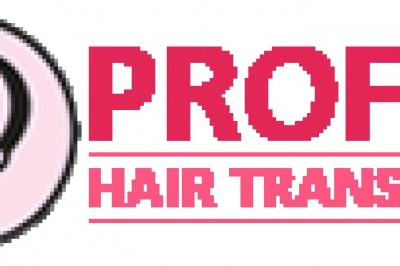467
views
views

The key to writing a non-fiction book title stems from the understanding that your readers are looking for a solution or help in some way.
Did you know just by changing your book’s title, you can sell 10X more copies per year? Yes, you read it right. 10 times more, or probably much more. Titles are the first thing readers look at when they explore new books. It means you have all but 5 seconds to impress a reader with the title of your book. Titling the book is probably a brilliant marketing hack for authors.
So, if you are a new author considering self-publishing a book or a seasoned author wondering how not to plummet your book sales, this blog provides essential guidelines for creating a bestselling book title.
How to Write a Book Title for Non-Fiction
Titles are not the first thing publishers look at when you submit your manuscript for review. It most often comes after the editor approves your book for publishing. However, you ought to craft the title before you self-publish your book. Since the criteria and considerations vary for non-fiction and fiction, the rules for titling are also different.
The key to writing a non-fiction book title stems from the understanding that your readers are looking for a solution or help in some way. They need you to solve their problem – whether it is life, health, relationship, business, or weight loss. And that is exactly what they search for in your title.
-
Your Title Must Get Straight to the Point
Your title should be clear on what your readers will receive by reading your book. It should be promising and guarantee results. For instance, if your book talks about the benefits of yoga in weight loss, titles A and B will be more effective than title C.
-
Yoga Poses that Reduce Weight and Help Covid Survivors
-
10 Yoga Poses for Weight Loss: Lose 10 Kgs in 2.5 Months
-
Benefits of Yoga in Weight Loss
If your book solves a difficult problem, include it in your title.
-
Use Title Generator Tools for Unique Ideas
If you are lacking inspiration all of a sudden, there’s no harm in looking at title generators for ideas. Book title generators can give you a wide range of options. They also help you ensure that your chosen title isn’t already used by another author.
CopyWritingCourse, Title Generator, Headline Generator, and Potent Idea Generator are our top choices for non-fiction book title generators.
-
Add Subtitle for Better Clarity and Competitiveness
The subtitle provides a few extra facts about the book, like the desired outcome people can expect. For instance, it can address the pain points or provide an innovative solution. Following our previous example, here are our choices of brilliant subtitles:
-
10 Yoga Poses for Weight Loss – Lose 10 Kgs in 2.5 Months
-
Lose 10Kgs in 2 Months with These 7 Yoga Poses – Perfect for People with an Injured Knee
-
Don’t Spend to Lose Weight: Self-guided Yoga Poses for Perfect Health
How to Write a Book Title for Fiction
When it comes to fiction, you can get really creative. Your imagination is only your limit. However, you must ensure that it piques readers’ interest just right. So, follow these rules when drafting a clever book title for your next novel.
-
Make The Title Irresistible
With digital book publishing companies, readers have more options now. While growing through the list of books online, your title should be compelling enough for a reader to stop and read. The headline should tease your reader’s senses and leave them wanting more. Ask yourself, “what emotions do you want your readers to feel when they read your book title?”.
Pro Tip: Choose at least five titles that will draw your reader’s attention and conduct a survey. You may ask your followers to participate in a contest for choosing the title, consult with your friends and family, create a Twitter or Facebook poll, or do all of the above. If people feel a part of your book, they will more likely read it.
-
Write the Book Title That Relates To Your Genre
The title’s language and tone should resonate with your target readers and book genre. For instance, an action-packed book should have strong words, while a romance novel can use mellow and sweet words.
Ask yourself, “what are the perfect words that describe my book, story, characters, or genre”?
Shakespeare’s book titles have always been our favorite example. We also like the titling sense of Julia Quinn and Nicholas Sparks.
-
Seek Your Characters and Settings for Inspiration
Julia Quinn’s What Happens in London is a beautiful romance between two neighbors and Offer from a Gentleman, a fierier version of Cinderella. Cecilia Ahern’s Love Rosie is a love story expressed through letters, texts, and email conversations between two best friends.
These examples tell you that you can capture the soul of the protagonists and use their names for your title. Or you can take inspiration from the plot or setting, the character’s special qualities, or whip up something keeping the antagonist in mind.
Alternatively, you could choose an original that offers a literary experience to the readers. Example: The Great Expectations, a double entendre or alliteration that spices up the title.
Quick Read: Understand How to Publish a Fiction Book
While Creating Your Book’s Title….
Whether you are self-publishing a book or choosing the traditional route, whether this is your first book or you are an ace player, the strategy for writing a book title will remain the same throughout. A good book title can be the difference between a bestseller and an ordinary book. So, while creating your book’s title, remember the following points:
-
Provoke curiosity. Embrace originality. No book in the history of book publishing must have a title like yours.
-
Make your title stand out. Imagine someone scrolling through hundreds of books on Amazon. How can your book be different?
-
Count your words wisely. In the age of online searches and self-publishing, with millions of authors running the race, it is important to avoid one-word titles. To make search results more specific, consider at least four words title.
-
Don’t use explicit language. Make sure the title of your book doesn’t inadvertently refer to any controversial topic or hurt people’s sentiments. Also, avoid titles with negative themes like Why Racism is a Good Thing.
-
Whip up a simple and memorable title. A good title should be memorable and, at the same time, easy to remember and easily pronounced. Most easy-to-remember book titles have a nice ring to them and are unique.
-
Avoid identical titles. For instance, we found two books this year with similar titles: Wish I Could Tell Her and Wish I Could Tell You. The latter is from a bestselling author, but the former isn’t. The latter is a best seller, but the former received lots of sales simply because of search query confusion.
-
PRO Tip for non-fiction writers: If you tell someone the title of your book and they ask what it is about, you probably need to find a new title. If you have written a brilliant title, but it doesn’t provide clarity, add a subtitle.












